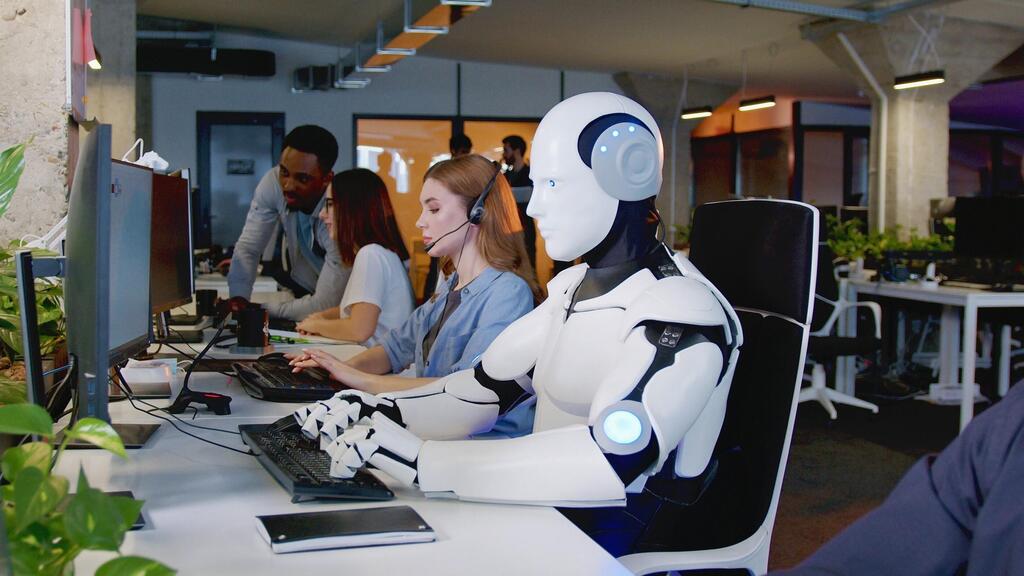Luis von Ahn, founder and CEO of the language-learning app Duolingo, sent an email in late April to all employees which contained surprising news: the company, which brands itself as “AI-first,” plans to phase out contract workers whose jobs can now be done by artificial intelligence.
Duolingo is not alone. In March, Shopify introduced a policy requiring managers to prove that AI cannot perform a job before new hires are approved. In May, Salesforce acknowledged that its use of AI had contributed to a slowdown in hiring, with 500 customer service workers reassigned to other roles.
That same weekend, Business Insider laid off 21% of its staff while doubling down on its AI strategy. “Over 70% of Business Insider employees are already using Enterprise ChatGPT regularly (our goal is 100%),” CEO Barbara Peng wrote in a memo.
Since the launch of powerful generative AI models and autonomous agents two and a half years ago, experts have warned that such technology could shrink hiring and lead to layoffs, particularly in white-collar professions. Once seen as a distant risk, this trend is now becoming a reality. A growing body of evidence shows that companies are actively replacing human workers with AI, especially at the entry level.
Zanele Munyikwa, an economist at labor analytics firm Revelio Labs, recently analyzed online job postings for roles that involve tasks AI can now perform. She found that listings for these jobs have dropped by 19% over the past three years. Her conclusion: companies are simply opting not to hire for positions that AI can do.
According to Munyikwa, roles with high exposure to automation, such as data engineers, database managers, and IT specialists, are more likely to be affected than jobs with lower exposure, like restaurant managers, construction foremen or mechanics. In other words, white-collar positions that rely heavily on data analysis and processing are seeing the sharpest decline in demand. Still, she warned, it’s unclear whether AI in its current form is truly capable of handling all the roles employers believe it can.
The trend is also showing up in macroeconomic data. The U.S. unemployment rate for recent college graduates has risen to 5.8%—a sharp uptick. According to the Federal Reserve Bank of New York, job prospects for this group are “deteriorating markedly.” A May report by Oxford Economics attributed the rise in graduate unemployment largely to changing hiring practices in the tech sector. “There are signs that entry-level jobs are being replaced by artificial intelligence at an accelerating pace,” the report stated.
Get the Ynetnews app on your smartphone: Google Play: https://bit.ly/4eJ37pE | Apple App Store: https://bit.ly/3ZL7iNv
According to The New York Times, these figures may only hint at a broader shift already in motion. More companies are automating entry-level roles and replacing junior staff with AI tools. One tech executive told the paper their company had stopped hiring programmers with 3–7 years of experience, as AI coding tools could now handle that work. Another startup said one data scientist had replaced what used to be a 75-person team.
Anthropic CEO Dario Amodei echoed these concerns in a recent interview with Axios, warning that AI could eliminate half of all entry-level jobs and raise overall unemployment by 10–20% in the next five years. “Most workers are unaware that this is going to happen,” he said. “It sounds crazy. People just don’t believe it.”
Still, the future Amodei envisions isn’t set in stone. Today’s AI systems are not perfect, and some companies have been forced to backtrack. Swedish fintech Klarna, which announced plans two years ago to replace its customer service agents with AI chatbots, has since rehired humans after complaints about declining service.
Such reversals may be temporary. AI models from companies like OpenAI and Google are improving rapidly, and even smaller players like China’s DeepSeek have made impressive breakthroughs.
The bigger long-term question is what happens to complex jobs that AI still can’t handle. Today’s experts started out as entry-level workers, learning through hands-on experience and mentorship. But in a world where companies are hesitant to invest in early-career talent, the pipeline for future expertise is thinning. Then again, perhaps companies are betting that by the time that becomes a problem, AI will be able to do those jobs too.



